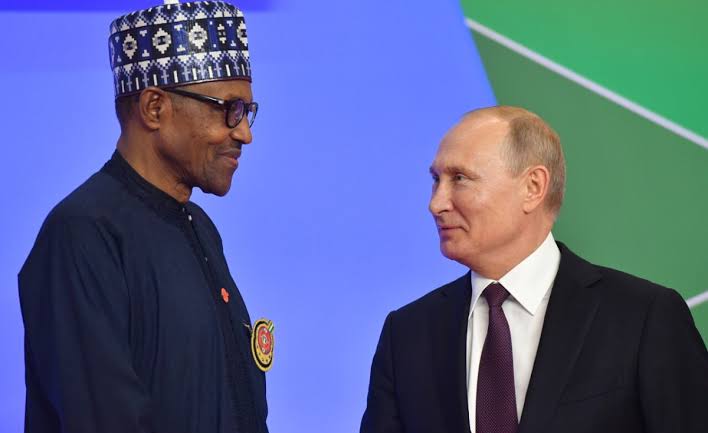By John Okeke
Nigeria–Russia relations bilateral relations has come a long way .
Diplomatic relations between Nigeria and the Soviet Union were established on 25 November 1960.
Russia has an embassy in Lagos and a representative office in Abuja, and Nigeria has an embassy in Moscow.
Russia has been a longstanding and time-honoured friend of Nigeria. Bilateral relations between the two countries developed over the years and marked with such epochs as the visit of Nigeria’s President Olusegun Obasanjo to Moscow and that of Russian President Dmitri Medvedev to Abuja in 2001 and 2009, respectively.
Russia (USSR) military and sundry assistance to the Nigerian armed forces during the country’s civil war of 1967 – 1970 represented a watershed in their bilateral relations. Indeed, it’s not an overstatement as some analyst have argued that it was this timely intervention by Russia that kept Nigeria together again, as her traditional allies stood aloof at that crucial time in the annals of her history. Expectedly, by the end of the war in 1970 Nigeria-Russia economic relation had apparently grown, as the former had opened its doors to manifold Russian products aside numerous contract awards in favour of Russian companies. Going forward, the bilateral relations of Nigeria and Russia later grew and witnessed cooperation in such areas as petroleum industries geological exploration, among others.
In addition, a number of agreements, including on air communication, economic, scientific and technical cooperation, trade agreement to mention but a few were signed, along the line. However, most of these became comatose at some point and required urgent review and reinvigoration in a bid to reposition the Nigeria-Russia bilateral relations. Following the exchange of state visits by the Presidents of Nigeria and Russia between 2001 and 2009 bilateral relations between the two countries received a boost and acquired a qualitative new face with enhanced levels of cooperation at almost all fronts. In 2001 for instance, the two countries signed the Declaration on Principle of Friendly Relations and went ahead to establish the Intergovernmental Commission on Economic Scientific-Technical Cooperation (ICESTC) aimed at laying a strong foundation for mutually beneficial relations.
It was also intended to deepen bilateral ties and increase trade volumes between them.
The commission was envisaged to meet regularly to discuss wide range of issues relating to the bilateral relations between the two countries. In tandem, cooperation between Nigeria and Russia in the area of science and technology culminated in the launching of Nigeria SAT 2 and Nigeria SAT X spacecrafts into orbit via a Russian rocket and from a launch pad in Yasny, southern Russia, in August 2011. Nonetheless, it cannot be overemphasized that the development of key areas of Nigeria-Russia relations is still work in progress.
This is in spite of the level of relations on security, defence, trade and economy, education, science & technology already achieved.
There is need to increase the tempo of expansion of their mutually beneficial ties, including people-to-people ties so as to take their relations to the next higher level.



